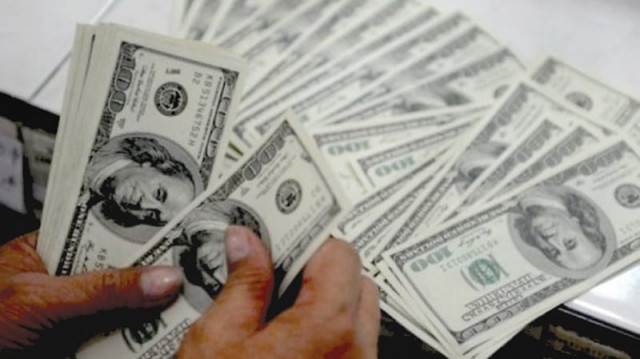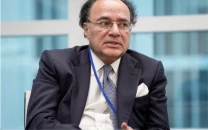Exploring trade potential: Pursue relations with other countries
Pakistan continues to bank on gifts from Saudi Arabia, support from the US

The trend continues with the present government as it looks toward Saudi Arabia, which gave Pakistan $1.5 billion earlier this year, for friendly gifts. According to sources, it has agreed to give another “gift” of around $2 billion to the Pakistan government during Prime Minister Nawaz Sharif’s recent visit to Jeddah. The development has not been confirmed yet though.
It comes as a surprise to economic managers that Pakistan requested Jeddah to extend a longer-term credit facility for oil purchase from the existing 30 days to a year.
It also expressed its desire that Pakistan State Oil (PSO) be facilitated to strike a direct supply deal with Saudi oil refineries in a bid to save. The country also wanted Saudi energy firms to invest in Pakistan’s oil and gas exploration sector.
However, the wishes were not granted and, instead, Saudi Arabia granted $1.5 billion with another “gift” in the pipeline.
This kind of a relationship based on gifts between Islamabad and Jeddah did not just anger another brotherly nation Iran but also put a question mark on the country’s real priority.
The previous government of Pakistan Peoples Party (PPP) worked on bilateral relations with Iran that could have helped overcome the persistent energy crisis. The crisis, which has deepened and worsened, has hit economic growth with businesses and public suffering alike.
Experts have – over and over again – stressed that the time is ripe for Pakistan to maintain a balance in its relationships with neighbouring countries to attract investment. Reliance on one or two countries is not the ideal path to take and different avenues need to be explored. Due to this heavy dependence on Saudi Arabia and the US, Pakistan has already seen several investment opportunities go down the drain. The present government has dumped the IP gas pipeline project after the heavy gift dose from the brotherly country.
Expers have stressed that Pakistan has used almost 40 per cent of its total gas reserves and hence, the IP gas pipeline project was a lifeline for the country’s economy. Iran had also announced to establish an oil refinery with a 400,000-barrel-per-day capacity at Gwadar port at an investment of around $8 billion. Now, this seems to be a far-fetched dream due to Pakistan’s inconsistent policies.
It also seems ironic how the government is looking to enhancing trade ties with India but is uninterested in exploring what Iran could offer. Perhaps, the government is of the view that US sanctions will prove to be a hindrance in working towards a better trade relationship with Iran.
But other countries, including India, have found a way around it and had been importing oil from Iran after seeking exemptions from the US. Washington has, however, refused to give the waiver to Pakistan.
If the situation is so dire, there is no harm in pursuing a relationship with Russia, which had billions of dollars worth of investment plans for Pakistan.
Pakistan is currently banking on Chinese investment, who announced $50 billion investment in the coming years mainly in the energy sector and economic corridor to link with China. This investment may boost economic activity in Pakistan but the country needs to actively consider Russia.
The old, lagging issue of Pakistan’s exporters claim lying with Russia halted multibillion dollars of Russian investment. The government is trying to resolve this issue which is the need of the hour.
After facing US and EU sanctions, Russian is moving to China to find an energy market. During Russia President Vladimir Putin’s visit to China, the two sides agreed on an unprecedented 30-year energy agreement estimated at $400 billion. Pakistan needs to jump in and benefit from the China-Russia link.
As the energy politics gains momentum across the world, a club named the Shanghai Cooperation Organisation (SCO) has been formed, which is an initiative taken by Russia for providing support to energy projects in different countries including Pakistan. Under this energy club, Pakistan may get financial support for different energy projects.
The country, however, needs to quickly come out of its habit of being spoon fed and become an active member of the energy club. Otherwise, the country would literally enter the dark ages by 2020 when half of the country’s gas production would have depleted.
Published in The Express Tribune, August 4th, 2014.
Like Business on Facebook, follow @TribuneBiz on Twitter to stay informed and join in the conversation.



















COMMENTS
Comments are moderated and generally will be posted if they are on-topic and not abusive.
For more information, please see our Comments FAQ